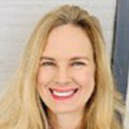DEI Dialogue
If You Have a Brain, You Have Unconscious Bias
Written by:
Cathy Nestrick (she/her)
DEI Leader / Co-Host, Parity Podcast; Former VP and General Counsel, Berry Global Group, Inc.
Unconscious bias is something we all have. To quote a speaker from SPE’s DEI in Manufacturing Conference in January, “If you have a brain, you have unconscious bias.” It’s that thing in our brain that kicks in and gives us first impressions about people. Before we actually know a person, our brain is already making judgments about who is trustworthy, capable and able to handle tough assignments. Our brains make these assessments in less than 0.1 second. And here’s the deal: Our first impressions are usually wrong.
We take our unconscious biases to work, and without being consciously aware, they play a role in how we interact with people and in our decisions about who to hire and promote. Depending upon our gender, race and other characteristics, these biases can either help us or hurt us. Unconscious bias tends to work against people who are underrepresented within an organization because they don’t look like the people who have previously been tapped for leadership roles.
It takes intentional effort to overcome and manage our unconscious biases. The first step is for all of us to assess them. You can take a free, online assessment—just search online for the Harvard Implicit Bias Project—to test your biases based on race, gender, ethnicity and more. Once you are aware of your own unconscious bias, the second step is to manage your biases, particularly when you are making decisions about work opportunities.
There are common biases of which we should all be mindful.
Gender bias occurs when we prefer one gender over another or assume that one gender is better for a particular job. A type of gender bias is attribution bias, which happens when people see women as less competent than men because they undervalue women’s accomplishments and overvalue their mistakes. Gender bias can be reduced by using gender-neutral language in job descriptions, using diverse hiring panels with equal numbers of women (including women of color) and men, and relying on skills and competency assessments instead of “gut feel” and “fit” when assessing a candidate.
Name bias can result in more competent employees being passed over because their names are not familiar to us. Using blind applications (so names are not known until later in the process) can reduce this bias.
Beauty bias plays out when we equate beauty, especially in women, with competency, and weight bias occurs when we judge people negatively due to their weight. Similarly, height bias is when we assume that taller people (particularly men) are more competent than shorter people.
Being aware of these common biases and having processes that focus on skills and competency assessments can reduce them.
We are often drawn to people who think like us because of confirmation bias, but new and different ways of thinking result in innovation and creativity. Conformity bias occurs when our views are swayed by the views of others—this is also known as “groupthink.” General awareness of these biases can help steer you away from making decisions for the wrong reasons.
We are most comfortable with people who share similar interests, backgrounds and experiences—this is affinity bias. Without a check on this bias, homogenous workforces will stay homogenous. Using diverse hiring panels can help reduce this bias.
Perception bias occurs when we treat people based on stereotypical (and often wrong) assumptions. An example is when you don’t invite someone to lunch because you assume that they wouldn’t want to attend due to their differences (e.g., age, gender, race, etc.). This bias not only excludes people but hampers an organization’s efforts to develop a more inclusive culture.
Often coined the “motherhood penalty,” many people assume that women are less committed to work after having children, unlike men who are often assumed to be more committed to work after becoming fathers. Having both maternity and paternity leave with cultures that encourage all parents to use these benefits can help reduce this bias. Offering remote and flex opportunities can also help parents stay on track with their careers while children are young.
By understanding our own biases, we can transform ourselves from having unconscious biases to being consciously unbiased. The key is awareness and daily attention to counter our innate assumptions.
We can also reduce our biases by listening to stories about people who don’t conform to stereotypes. You can start on LinkedIn by following Dr. Sherrika Sanders who received a PhD in chemistry from the University of Houston and is currently a senior technical engineer with Manner Polymers of McKinney, Tex., and Lilian Agyemang-Yeboah, who graduated from the University of Massachusetts, Lowell, with a degree in plastics engineering and is an applications engineer at Entegris of Billerica, Mass.

Cathy Nestrick is a retired executive in the plastics industry, the founder and co-host of Parity Podcast focused on accelerating gender equality, and a DEI thought leader and speaker. You can find her on LinkedIn or www.par-ity.com.








.jpg)
.jpg)
.jpg)

.jpg)
